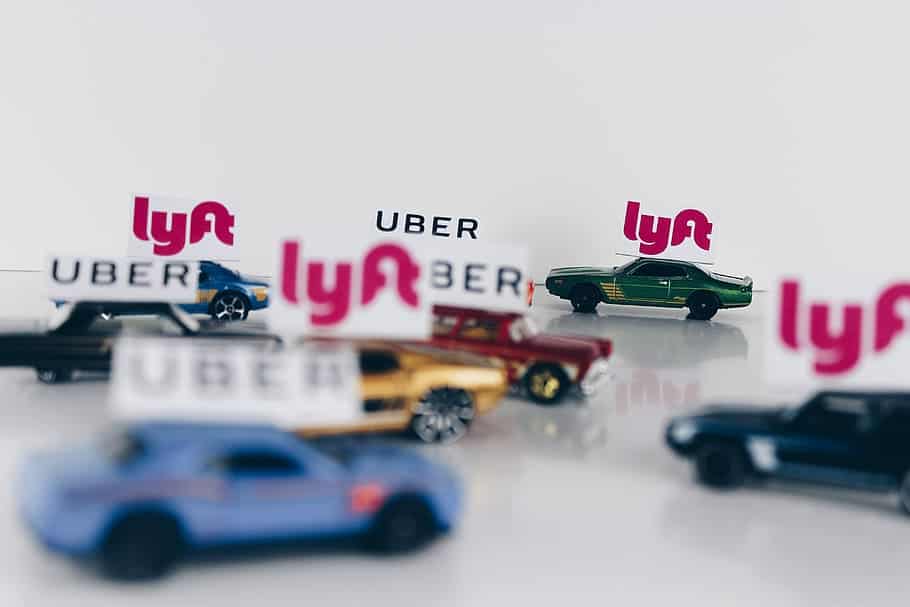
David Madland is a Senior Fellow at the Center for American Progress Action Fund.
On November 5, Massachusetts voters passed a groundbreaking ballot initiative making it possible for rideshare drivers in the state to unionize. The new law is a big deal. It will allow drivers for companies like Uber and Lyft to create strong, independent unions that can bargain collectively for the entire sector based on models that have proven successful elsewhere for hard-to-organize workers.
The initiative creates the potential for drivers to improve their working conditions and build the power necessary to create real and lasting changes in industry. It isn’t perfect – the law reflects some nasty political realities. But the new law gives drivers a powerful tool for improving their work lives and it offers a model that other states might follow.
The new Massachusetts law calls for a different type of unionization and bargaining process than is common in the U.S. The typical American processes for forming a union and bargaining collectively are unnecessarily difficult for most workers but nearly impossible for workers in industries like rideshare with high turnover, irregular hours, and more isolated workplaces.
Under the typical federal union process, rideshare drivers would gain the right to try to negotiate an agreement with a company only if they won an election among all drivers at that company. In trying to win their election, drivers wouldn’t have the right to view the contact information of their peers unless they gather signatures from 30 percent of them.
Yet, it is unfeasible for workers to identify all their fellow rideshare drivers at any given moment let alone reach them and discuss joining a union, as the companies have the ability to quickly activate and deactivate drivers. While workers face great difficulty contacting their fellow workers, rideshare companies can easily target workers with anti-union messages.
If rideshare workers managed to secure and win a vote against the odds, drivers would still have little chance of achieving a collective bargaining agreement. Since federal law does not offer drivers a way to force the companies to come to a fair agreement, companies commonly delay negotiations endlessly to avoid signing a first contract.
A different process is needed to provide a path for rideshare drivers to unionize and bargain collectively. Ideally federal level changes would make unionization more feasible for all rideshare drivers, but because of loopholes in the law (more on that below) Massachusetts could legally create a better system for rideshare.
Massachusetts’s new law will make it easier for workers to gain access to the contact information of their fellow drivers (when they demonstrate five percent support) and provides a lower threshold of support required to begin the bargaining process (25 percent). Majority worker support is required for contract ratification. The process also provides for arbitration to prevent endless negotiating delays. The Massachusetts Secretary of Labor would provide a final fairness review of any agreement.
Finally, under the initiative, the collective bargaining agreement would cover all rideshare drivers no matter what firm they work for. This type of bargaining coverage – often known as sectoral bargaining – is particularly well-suited to rideshare because it covers all drivers in the industry, from full-time to casual, no matter how firms try to structure their work. Indeed, as one academic study explained, workers in occupations that are “inherently hard to organize … are more likely to be organized in unions” under sectoral bargaining systems.
Ensuring unions can bargain for all rideshare drivers to raise standards in the industry is a massive step forward and creates a potential model for other states to follow.
Still, it is important to note that the new law isn’t perfect – largely because it works within a flawed legal structure where rideshare drivers have few legal rights because they are wrongly considered “independent contractors,” rather than employees. Different laws have different tests for employment status, but unfortunately rideshare drivers are considered independent contractors under both federal and Massachusetts laws.
Because independent contractors aren’t covered by federal labor law, Massachusetts has the leeway to create a better unionization process. And because there is no clear path in the short term to ensure drivers are considered employees under state law, the initiative didn’t try to change state laws on employment status. Instead, the initiative leaves that fight for another day when these workers hopefully have more power because they are unionized.
In 2020, the Massachusetts Attorney General’s Office brought a lawsuit seeking a court ruling that Uber and Lyft drivers are employees under state Wage and Hour Laws. The state has perhaps the strongest test in the country for determining employment status (the so-called ABC test), so in theory the lawsuit should have been easy to win. But, after four years of legal wrangling, the Attorney General’s Office settled their case without getting the companies to classify their workers as employees.
Instead, the state Attorney General secured a requirement that the companies withdraw their proposed ballot initiatives that would have rewritten state employment laws, as well as obtained some minimum standards for drivers and millions of dollars in restitution. The Attorney General’s office was likely influenced by the threat of rideshare companies spending lavishly to change the law as they have done in many states in the country, including overturning strong ABC laws such as those California previously had.
Whether rideshare drivers can build unions strong enough to improve working conditions sufficiently to overcome the deficit they are starting from without legal employment rights remains to be seen. Workers in Denmark, Norway and Sweden have been able to create good jobs with few minimum legal standards – indeed in those countries there is no minimum wage other than what unions bargain for. But whether workers can do so in the U.S. is another matter.
Still, there are signs that Massachusetts rideshare drivers can succeed. First, these workers are not starting from ground zero: the Attorney General’s settlement created some (relatively low) minimum standards for wages, paid leave, and health insurance. Second, drivers are actively organizing, and collective action can have real power to change U.S. corporate behavior.
Finally, the Massachusetts law is based upon a sectoral model that has proven successful elsewhere and that other countries are increasingly moving towards. Indeed, the Australian Labor government created a sectoral “supported bargaining stream” in 2022, and the European Union is currently pushing all its member countries to adopt sectoral bargaining models. The new British Labor government plans to enact “Fair Pay Agreements” containing an easier path for unionization and collective bargaining that covers the entire sector. In the U.S., somewhat related sectoral standard-setting models have boosted wages in home care in Nevada, nursing homes in Minnesota, and in fast food in California.
In short, the Massachusetts model of collective bargaining for rideshare drivers is a promising experiment that deserves close attention.









Daily News & Commentary
Start your day with our roundup of the latest labor developments. See all
June 30
Antidiscrimination scholars question McDonnell Douglas, George Washington University Hospital bargained in bad faith, and NY regulators defend LPA dispensary law.
June 29
In today’s news and commentary, Trump v. CASA restricts nationwide injunctions, a preliminary injunction continues to stop DOL from shutting down Job Corps, and the minimum wage is set to rise in multiple cities and states. On Friday, the Supreme Court held in Trump v. CASA that universal injunctions “likely exceed the equitable authority that […]
June 27
Labor's role in Zohran Mamdani's victory; DHS funding amendment aims to expand guest worker programs; COSELL submission deadline rapidly approaching
June 26
A district judge issues a preliminary injunction blocking agencies from implementing Trump’s executive order eliminating collective bargaining for federal workers; workers organize for the reinstatement of two doctors who were put on administrative leave after union activity; and Lamont vetoes unemployment benefits for striking workers.
June 25
Some circuits show less deference to NLRB; 3d Cir. affirms return to broader concerted activity definition; changes to federal workforce excluded from One Big Beautiful Bill.
June 24
In today’s news and commentary, the DOL proposes new wage and hour rules, Ford warns of EV battery manufacturing trouble, and California reaches an agreement to delay an in-person work mandate for state employees. The Trump Administration’s Department of Labor has advanced a series of proposals to update federal wage and hour rules. First, the […]